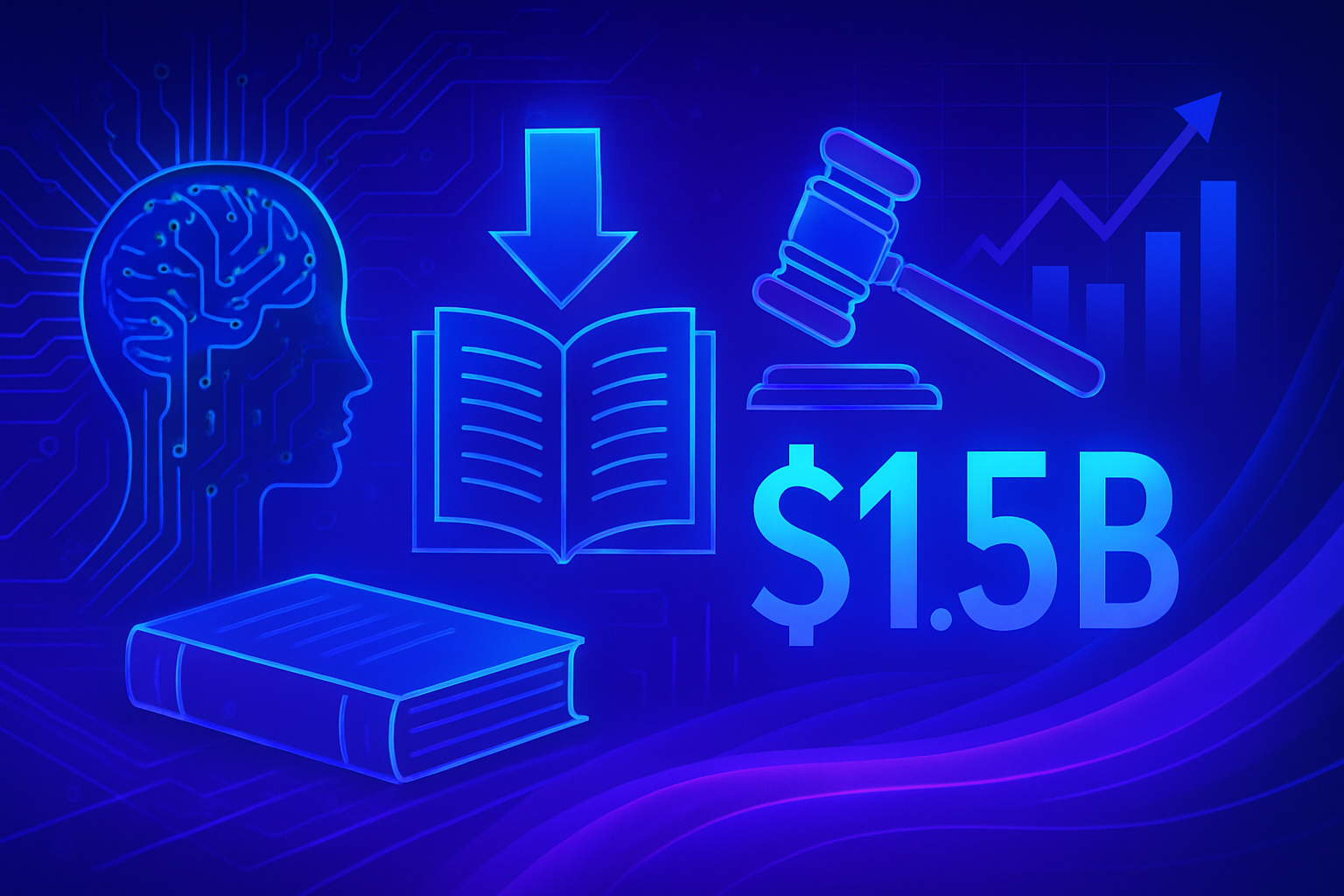A flood of concerns shakes the publishing industry with the Anthropic case, where the shadow of piracy weighs heavily. A start-up of generative AI finds itself at the center of a judicial storm, having illegally downloaded protected works. This colossal compensation of 1.5 billion dollars protects Anthropic from a lawsuit with potentially disastrous consequences. Writers and publishers unite to defend their copyright, marking a critical turning point in the use of data for training AI models. The settlement raises fundamental questions about the future of literary creation in the face of the emergence of artificial intelligence.
Financial agreement of 1.5 billion dollars
The American start-up Anthropic has chosen to pay a staggering amount of 1.5 billion dollars to avoid a lawsuit concerning the illegal downloading of literary works. This agreement, made public on September 5, comes in the wake of a lawsuit filed by a trio of authors. They accused the company of illegally downloading millions of books to feed its artificial intelligence system, including its chatbot Claude.
Legal context
The California judge who examined this case initially ruled that using copyrighted works to train artificial intelligence models did not constitute an infringement. However, Anthropic was found guilty of having downloaded and stored works from pirated bookstores. The amicable agreement prevents more serious legal consequences that could have jeopardized the company’s activities.
Reactions from stakeholders
Mary Rasenberger, executive director of the Authors Guild, called this settlement a “excellent outcome”. She emphasized the importance of this message to the artificial intelligence industry: companies must consider the rights of authors. This compensation results from a broader mobilization of writers and publishers, concerned about the impact of AI on their revenues.
Future prospects for Anthropic
The allocated sum of 1.5 billion dollars could eventually increase if the total number of affected works exceeds 500,000. An additional amount of 3,000 dollars per work will be owed. This agreement, subject to approval by federal judge William Alsup, still needs to be validated in San Francisco court. The transaction will allow Anthropic to focus its efforts on its projects without the threat of a lawsuit.
Implications for the industry
Many other lawsuits are looming in the field of artificial intelligence in the United States, with complaints filed by content creators across various sectors. Writers recently filed a lawsuit against Apple, claiming that the tech giant used pirated works to enhance its own AI models. With the legal framework remaining unclear, such cases raise questions about “fair use”, a key concept that could influence the future of generative AI.
Reactions from creator advocacy organizations
The organization Human Artistry Campaign expressed optimism regarding this agreement, viewing it as a promising sign for the protection of creator rights. Its spokesperson indicated that it represents a milestone in the fight against the abusive exploitation of creative content. The rising tide of these cases could prompt AI giants to reconsider their practices regarding the use of protected data.
Questions and answers about Anthropic’s 1.5 billion dollar investment
Why did Anthropic agree to pay 1.5 billion dollars?
Anthropic agreed to this amount to avoid a lawsuit related to accusations of illegally downloading protected works, in order to settle the dispute with authors, rights holders, and publishers.
What types of works were downloaded by Anthropic?
The works downloaded by Anthropic mainly include books, some of which are from pirate bookstores, according to the allegations against the company.
How does this agreement impact the generative AI industry?
This agreement sends a strong message to AI companies about the consequences of unauthorized use of creative works, following the goal of protecting copyright.
What are the implications for other AI companies in light of this agreement?
This agreement could prompt other AI companies to take similar measures to avoid legal action by regularizing their use of protected content.
How did Anthropic obtain the disputed works?
Anthropic has been accused of downloading these works from pirate sites to train its AI models, which led to the lawsuit with the authors.
What is the role of the federal judge in this agreement?
The federal judge must approve the agreement between Anthropic and the plaintiffs, which is a necessary step before the funds can be effectively disbursed.
What is the message from the Authors Guild regarding this agreement?
Mary Rasenberger, executive director of the Authors Guild, described this agreement as a positive outcome for authors, stating that it sends a clear message about the consequences of piracy of works by AI companies.
What are Anthropic’s future plans following this agreement?
Anthropic is focusing on its core mission and technological development rather than engaging in prolonged litigation, hoping to move forward without hindrance.






